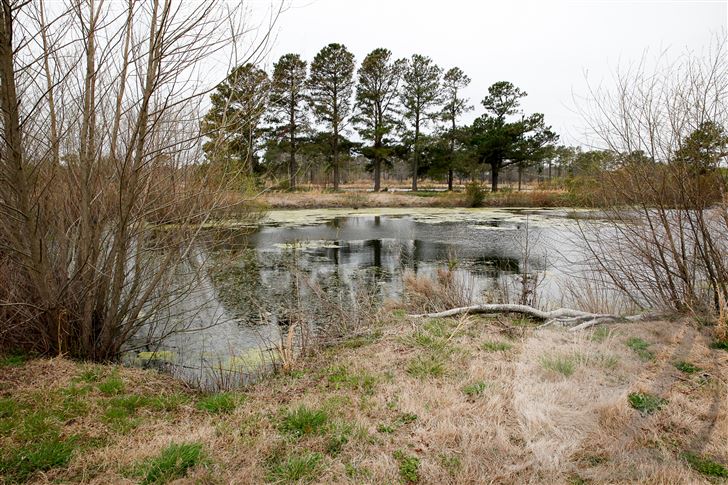Judge Upholds Solar Farm Denial
By William F. West
CURRITUCK — A Superior Court judge has upheld Currituck County’s denial last year of a San Francisco-based solar company’s bid to build a solar farm on a former golf course in Grandy.
Chief Resident Superior Court Judge Jerry Tillett, in a decision issued last month, ruled Currituck commissioners were correct when they denied Ecoplexus Solar Solutions a conditional use permit for the proposed Sunshine Farms solar farm. Ecoplexus was seeking to build the solar facility on part of what had been the Grandy Golf Club on Uncle Graham Road.
Chuck Lollar, an attorney in Norfolk, Virginia, who represented a long list of adjacent property owners opposed to Ecoplexus’ plans, said his clients are pleased with Tillett’s ruling.
“It was the right decision – and it’s a decision for property rights,” Lollar said.
Lollar’s clients claim Ecoplexus’ proposed solar farm would be “aesthetically displeasing” and adversely impact their property values. They also had said the proposed solar farm project would have required filling nine ponds spread over six acres, displacing as much as 12.5 million gallons of water in the process.
Attempts to obtain comment from representatives of Ecoplexus were unsuccessful. The company had claimed in court documents that commissioners’ decision in April 2016 to deny the company’s permit was both impulsive and unreasonable.
But county documents suggest the Currituck Planning Department had expressed concerns about Ecoplexus’ proposal to fill the ponds at the former golf course without what planners deemed were adequate plans to address water drainage. County planning officials said solving the drainage issue was important to avoid negatively affecting adjoining properties.
The drainage issue also appears to have played a key role in Tillett’s decision. In his March 13 ruling, Tillett cites information from Steve Fentress, a neighbor and vocal opponent of the proposed solar farm who has since died.
According to Tillett’s ruling, Fentress had testified during a hearing before county commissioners that 11 drainage inlets currently bring stormwater from surrounding properties to the ponds at the former golf course. Fentress had noted, however, that only one outlet allows stormwater to be discharged from the property. That meant, Tillett said, that drainage and stormwater management would “not necessarily be easy” at the proposed solar farm site.
Tillett also noted another neighboring property owner had advised commissioners that stormwater floods her property to knee-high levels, and that she had submitted photos showing her property inundated by stormwater runoff.
Tillett also noted that Nathan Rodgers, a project development manager with Ecoplexus, had testified about the possibility of the company using herbicides for grass control on the property, but had not been able to state when the chemicals would be used or in what amounts.
Tillett also cited the testimony of Ron Heiniger, an N.C. State University professor with expertise in crop science. Heiniger had told commissioners he believed the former golf course’s ponds were important for controlling and maintaining nutrient runoff, as well as reducing the impact of water flow onto adjacent properties. Heiniger also testified that the ponds are key to allowing the herbicides to degrade before leaving the former golf course, Tillett noted.
Heiniger further testified that eliminating the ponds from the property “would be an environmental disaster, quite frankly, for this community,” Tillett noted in his ruling.
The judge also cited the testimony of Bruce Sauter, an appraiser brought in by Fentress to speak on behalf of the former golf course’s neighbors. Sauter told commissioners he believed the proposed solar project wouldn’t be in harmony with an adjacent residential subdivision, which had been developed when the golf course was already in place.
In his ruling, Tillett dismissed the findings of Richard Kirkland, the appraiser Ecoplexus hired. Kirkland had told commissioners he believed the proposed project would be in a harmonious location and wouldn’t impact neighboring property values.
Tillett ruled Kirkland had only reviewed residential property values adjacent or near the former golf course. Kirkland did not compare residential property values located around a golf course that was converted into a solar farm, the judge said.
Ecoplexus officials had claimed that one commissioner — Paul Beaumont — was biased against solar farms and predisposed to vote against the proposed project.
In dismissing that argument, Tillett noted that then-Commission Chairman David Griggs, before the start of the April 2016 hearing on Ecoplexus’ request for a conditional use permit, had advised fellow commissioners to only consider the evidence to be presented at the hearing.
Tillett also ruled that Ecoplexus neither objected before or during the hearing about any commissioner’s ability to render a fair and impartial decision on the company’s request. Ecoplexus also never called for any commissioner to step aside before hearing the matter, he said.
“Even if Commissioner Beaumont had prior experience or knowledge related to solar farms, that in and of itself did not objectively demonstrate that grounds existed for disqualification or that some commitment was made to decide the case a certain way,” Tillett wrote.
While jubilant about his clients’ victory in court, Lollar expressed sadness at the loss of their chief advocate, Fentress, who died a week after Tillett’s ruling. Lollar said Fentress had continued to rally fellow residents against the proposed solar farm throughout the case.
“Steve Fentress put out a lot of his own personal funds in fighting this — and he did it for everybody — but he thought it was the right thing to do,” Lollar said.
